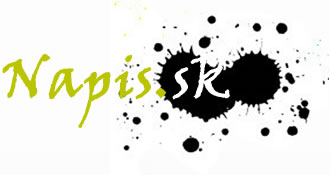Adjectives
- by freeva
Comparison of adjectives
Only qualitative adjectives have degrees of comparison.
The positive has the form of a qualitative adjectives.
Examples:
Pekný(nice), dobrý(good), zlý (bad), malý(small), veľký(big), dlhý(long), úzky (narrow)
The comparative is formed in two ways:
By suffix –ší
If the stem of the adjective ends in a simple consonant : milší (kinder), mladší (younger), dlhší (longer), dlhší (longer), slabší (weaker),
If the stem of adjectivess end in –ký, -oký, -eký,-iký: užší (narrower), nižší (lower),
Sladší (sweeter), redší (thinner), kratší (shorter), mäkkší (softer), širší (broader), vyšší (higher)
In adjectives derived from participles : známejší (more familiar),dospelejší (more adult), zúfalejší (more desperate),
In adjectives with the stem ending in a sibilant : horúcejší (hotter), rýdzejší (purer), sviežejší (fresher),
In adjectives where the relationship is considered as a quality : ľudskejší ( more humane), priateľskejší (more friendly),
In more syllabic adjectives ending in – itý, -atý,-istý, -ivý, -livý, -avý, -ľavý, -ovatý, -astý, e.g. zložitejší (more complicated), citlivejší (more sensitive),jedovatejší (more poisonous),
The superlative is formed from the comparative and the prefix naj-: najmilší (the kindest), najkrajší (the nicest), najmladší(the youngest), najmúdrejší(the wisest)
We also have irregular degrees of comparison for example in these adjectives dobrý(good)- lepší- najlepší, zlý (bad) – horší- najhorší, veľký(big)- väčší- najväčší, malý(little)- menší- najmenší, krásny(beautiful)- krajší- najkrajší
If you want to learn more just have a look at my website http://www.filip-en.eu and contact me.
